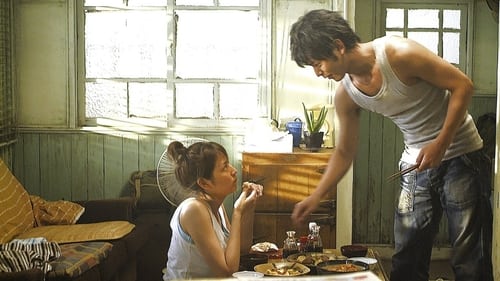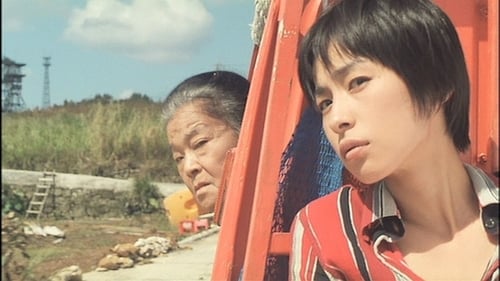
Tanme
Yuriko (Yuki Shibamoto) is tired of her relationship with a married man. She leaves Tokyo and goes back to her hometown of Yugafu, which is located on small island in Okinawa. The married man though follows Yuriko to the small island. In addition, the married man's wife also arrives on the island. They married couple causes all kinds of disturbances...

Purusu Riri
A genius sushi chef travels to New York to battle it out with the local competition there.

Kanako joins a high school where she is reunited with her childhood friend, Eijun. Following the idea of Seiryo, Kanako's elder brother, they form a band. They aim to perform at the school festival, however, they are unable to get through the audition. The following year, they perform at a local music event, Yaeyama Band Tengoku, under a new band name.

A love story about two step-siblings, Yota and Kaoru. Long ago, Yota's mother married Kaoru's jazz-playing father, effectively merging the two families. Unfortunately, Kaoru's father skipped town, and Yota's mother passed away, but not before imparting a dying wish to her young son to take care of Kaoru.

Mieko's Grandmother
Hotel Hibiscus is the story of one very young energetic girl named Mieko and her internatioanl family who live in Okinawa. They live in a run down old hotel called Hotel Hibiscus with only one room for rent.

Nabbie Agarikinjo
Nanako returns to her hometown on the tiny island of Aguni to meet her grandmother Nabbie. However, when Nanako's ferry arrives, it is also carrying Nabbie's former lover, who has returned to Aguni after a long absence.

Tsuru is a roving broadcaster and collector of singing-and-dancing DNA samples, kept in her lunchbox. One day she finds an abandoned script (its penniless author has fled to Taiwan in search of a woman) and so she moves into the writer's house and sets about staging it as a play.

An anthology film consisting of three linked stories by different directors, all set on an Okinawan island. The first story, 'Aunt Reiko' concerns an opera singer who travels back to her home island to consult a spiritualist about the loss of her voice. The second story, 'Haruko & Hideyoshi' concerns an outsider to the island who is tricked into marrying an island girl after visiting the island god of fertility with her. The final story, 'Bomb Kids' concerns two kids in a punk band who set out to win (or steal) a large amount of money. Linking these stories is the ongoing search for an unexploded WWII bomb, a large model pineapple, and the possibility of a hotel development coming to the island...

A mother and her daughter move from the urban sprawl of Tokyo to the remote island of Ishigaki in the Ryukyu archipelago, and try to adapt to life there.

Go Takamine's first theatrical feature is a pioneering work of Okinawan cinema, filmed almost entirely in Okinawan dialect. Taking place shortly before the resumption of Japanese sovereignty over Okinawa, Takamine’s film tacitly addresses the island prefecture's complicated history of occupation and feelings of dislocation through the story of a small community and its preparations for a wedding between a local girl and a Japanese teacher. On the periphery of these events is Reishu (Kaoru Kobayashi), who quits his job on a US military base and uses the extra time to catch snakes and play with ants – and get the bride-to-be pregnant. Takamine’s leisurely-paced film is full of uniquely Okinawan touches that mix in aspects of the island's folklore, accompanied by Haruomi Hosono’s spare and evocative score.

1979 film









